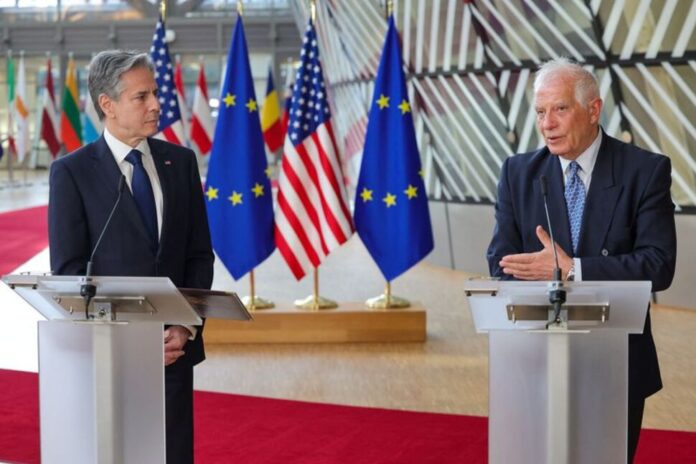The U.S. and EU pledged on Tuesday to confront any attempts to destabilise global energy markets, after meeting in Brussels to discuss the impact of Russia’s invasion of Ukraine, according to Reuters.
Cooperation on energy between the United States and the European Union has intensified since Russia slashed gas deliveries to Europe after its invasion of Ukraine last year.
This plunged the continent into a crisis over energy supplies and record-high prices.
European politicians have accused Russia of „weaponising” its energy supplies and the U.S. and EU have imposed sanctions on Russian goods including coal and oil, as well as a G7-organised price cap on seaborne Russian oil.
“The two sides reiterated their strong commitment to directly confront, with adequate measures, all efforts to further destabilise the global energy situation and to circumvent sanctions,” they said in a joint statement.
Europe has so far managed to replace most of the gas it previously got from Moscow, aided by a jump in imports from other suppliers, a rapid build-out of renewable energy, warm winter weather and EU policies that curbed overall gas use.
The U.S. delivered 56 billion cubic metres of liquefied natural gas (LNG) to the EU in 2022, more than doubling the previous year’s deliveries and making Europe the top destination for U.S. LNG supplies.
The U.S.-EU statement said the two sides would also intensify cooperation to cut reliance on Russia for nuclear fuel and services, and hold a joint meeting this year to promote advanced technologies such as small modular reactors.
The EU has not sanctioned imports of Russian gas or nuclear fuel, which some of the 27-country bloc’s members rely on.
Russia supplied 20% of EU nuclear power plants’ uranium – the main fuel for them – in 2021, and 31% of their uranium enrichment services, according to the Euratom Supply Agency.
The United States imported 35% of its uranium from Kazakhstan the same year, with 15% from Canada, 14% from Australia and 14% from Russia.


